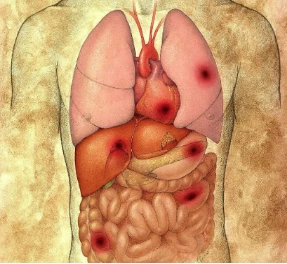Mesenchymal stem cells are expected to become new hopes for the treatment of sepsis

Mesenchymal stem cells are expected to become new hopes for the treatment of sepsis

Copyright © iCell Bioscience Inc, Shanghai 2018-2019
Sepsis is a life-threatening serious organ dysfunction caused by the host's dysregulation of infections such as bacteria. The disease progresses rapidly. In severe cases, septic shock and multiple organ dysfunction can occur, resulting in high mortality and disability. It is one of the main causes of death in critically ill patients in the clinic.
In the United States, many people have the same experience as Raleigh. According to the National Institutes of Health, more than 1 million people in the United States suffer from sepsis each year, and 30%-50% of them die. The annual number of deaths from sepsis in the world is more than 8 million, almost the same as cancer-related deaths.
At present, there are many symptomatic and supportive treatments for sepsis in the clinic. There is no specific treatment, and mesenchymal stem cells are expected to become a new hope for the treatment of sepsis.
Recently, StemCells magazine published a clinical trial of the University of Amsterdam. The results showed that mesenchymal stem cells have multiple immunomodulatory properties that are beneficial for the treatment of sepsis, and this is the world's first mesenchymal stem cell treatment pus. Human trial of toxicity.

A number of animal experiments have shown that mesenchymal stem cells can improve the survival rate of sepsis model animals by balancing inflammatory response, regulating immune status, improving organ function, reducing bacterial load, etc., showing stem cells in the treatment of sepsis. Great potential.
In 2017, "Chinese Journal of Cell Biology" revealed the protective effect of umbilical cord mesenchymal stem cells (UC-MSCs) transplantation on septic mice. The researchers randomly divided 90 mice into 3 groups: sham surgery ( Sham) group, PBS treatment group and hUC-MSCs treatment group. Comparing the three groups of medical data, hUC-MSCs can significantly improve the general condition of septic mice, reduce neutrophil infiltration, reduce inflammation levels in mice, improve organ function, reduce tissue damage, and significantly improve Mouse survival rate.
An early animal experiment at the University of Amsterdam also confirmed that mesenchymal stem cells can reduce sepsis by 73%. The researchers asked 32 healthy volunteers to take a dose of lipopolysaccharide (LPS) daily to induce endotoxemia, a bacterial inflammation that has some of the characteristics of sepsis and is therefore used as a sepsis. model. Each subject was also infused with allogeneic mesenchymal stem cells or placebo. Patients receiving allogeneic mesenchymal stem cells were divided into three groups, each receiving a higher dose of cells.
The results showed that allogeneic mesenchymal stem cells were well tolerated, and high-dose mesenchymal stem cells infusion increased the febrile response, exerted a combination of pro-inflammatory and anti-inflammatory effects, enhanced coagulation activation, and reduced fibrinolysis. It is indicated that intravenous allogeneic mesenchymal stem cells have various proinflammatory, anti-inflammatory and procoagulant effects in human endotoxemia.
As of 2017, more than 740 clinical trials of mesenchymal stem cells have been registered with US National Health Researchers, including more than 370 clinical studies of umbilical cord mesenchymal stem cells derived from neonatal umbilical cord tissue, accounting for the entire interim More than half of the clinical research on stem cells.
Compared with other sources of mesenchymal stem cells, umbilical cord mesenchymal stem cells are more pure and primitive, and the cells have stronger proliferation, differentiation and immune regulation, and the collection has no harm to the human body, and is expected to be an ideal seed for the treatment of sepsis.
 Loading ....
Loading ....
